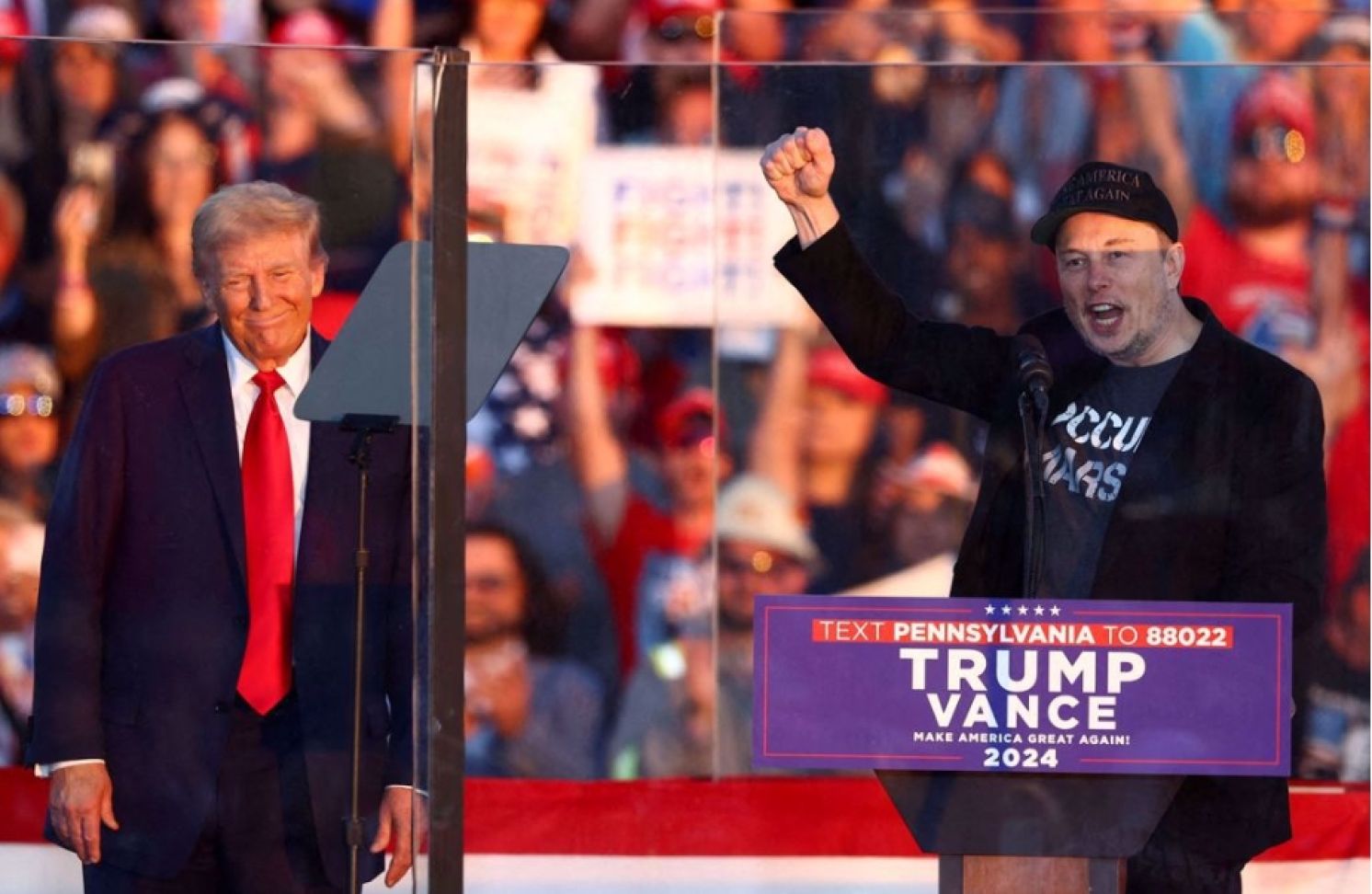
Elon Musk Whom the DPP Neglected
Lu Chih-hsiang, China Times Commentary, November 15, 2024
The core members of the Trump administration's national security team are mainly nominated. Taiwan’s ruling Democratic Progressive Party (DPP) seems feeling relieved by this line-up full of hawkish and anti-China tone and sentiment, mesmerizing itself by the fact that "the relationship between the United States and Taiwan is as good as it has been."
But the fact is that a most eye-catching personnel arrangement is the special relationship and influence between Elon Musk, the world's richest man, and President-elect Donald Trump. The DPP administration and Mr. Musk have been at odds many times, and the two sides have deep grievances against each other. Right now, the DPP has to swallow the evil fruits of its wolf warrior diplomacy.
After Mr. Trump announced that Senator Marco Rubio was appointed Secretary of State, Fox News anchor Peter Hegseth was surprisingly announced taking over the Department of Defense, and Representative Michael Waltz served as National Security Adviser to the White House, the green camp of Taiwan immediately cheered, emphasizing that Rubio and Waltz are Sinophobia, also solid friends of Taiwan. Paradoxically however, the Wall Street Journal reported that Beijing is also relieved by Trump's "anti-China dream team" because former Secretary of State Mike Pompeo and former National Security Advisor O'Brien are out, and there is still room for improvement in U.S.-China relations.
Today in Washington, the anti-China hawkish political force is prevalent. Anti-China ideology has become the common DNA of politicians, and there is no need to specifically and even excessively mention this anti-China political tendencies of individual officials. President-elect Trump, who is a political strongman, will assume overall decision-making power in his second term. His personal will, thinking and preferences will ultimately determine American foreign policy.
The most discussed topic in the political circles of Washington and American media is that Mr. Musk and entrepreneur Vivek Ramaswamy have been nominated to co-lead the newly established "Department of Government Efficiency." Although the body is not a formal federal agency and is not part of the national security team, Mr. Musk has been called the "first partner" to the president of the United States, and Mr. Musk is with Mr. Trump wherever he goes, his influence may far exceed that of other cabinet members. Because of his pro-China background, Beijing expects him to play the role to counterbalance the impact of Mr. Trump's diplomatic new team and reduce the damage they may pose on China.
Mr. Musk has vast amounts of investment in China, and he is one of the few American entrepreneurs who enjoys direct access to the senior Chinese Communist officials. Tesla became one of the first automakers to obtain the Chinese government's "certification in private." Beijing has high hopes for Mr. Musk, and the American media even described Mr. Musk as a "secret channel" between the United States and China, which can alleviate the pressure caused by Trump's threat to impose 60 percent tariffs on all Chinese exports.
The close and amicable relationship with China reflects a contrast that Mr. Musk’s relationship with Taiwan is cold and even antagonistic. He once told the Financial Times that China’s conflict with Taiwan is inevitable, and perhaps the "Hong Kong model" could be applied to resolve the crisis by allowing Communist China to have some control over the "Special Administrative Region". This statement was highly praised by the then Chinese Ambassador to the United States Qin Gang, but was seriously refuted by the then Ambassador Hsiao Bi-khim, representative to the United States, who said that Taiwan's freedom and democracy were not for sale.
Last year, at a summit meeting of corporate leaders, Mr. Musk compared Taiwan to Hawaii, and claimed that Taiwan was an "integral part" of China. Then Minister of Foreign Affairs Joseph Wu, currently secretary-general of the National Security Council, immediately rebutted, "Taiwan is not part of China, and it’s not for sale!”
The "Starlink" satellite network service of Mr. Musk's space exploration technology company SpaceX has covered more than 100 countries, but so far it has not been applicable to Taiwan, and it has recently been reported that he asked 46 Taiwanese suppliers of "Starlink" satellites to move manufacturing lines out of Taiwan, which shows Mr. Musk's icy relationship with Taiwan.
Coincidentally, Ramaswamy raised concerns during the Republican primaries last year when he raised the advocacy "abandonment of Taiwan", which sparked controversy. He said that the United States will help Taiwan to deter Chinese aggression until the United States achieves "semiconductor independence" in 2028 as this is in line with the interest of the United States. Hence, the assembly of three mercantilists, namely, Trump, Musk and Ramaswamy in the White House sounds not good news for Taiwan.
The art of diplomacy is to make good friends and convert enemies into friends. In the face of Mr. Musk's unfriendly remarks, other than refuting them, Taiwan’s diplomats should take the initiative to contact Mr. Musk and strive to win his support. However, the DPP indulges in wolf-warrior diplomacy, treating Mr. Musk as simply a businessman who dares to make irresponsible remarks about Taiwan, and believing that he has no place in the mainstream of political circle of White House, and he must be blamed.
But as the American presidential election saw an unexpected outcome, Mr. Musk and some of his like-minded Trump supporters have become cronies in the newly elected administration. On the other hand, because the DPP tolerates no different opinion, along with the fact that it often bets on the wrong side of the American presidential election, the vicious cycle spiral and effect will ultimately hurt Taiwan's overall interests. This is a warning sign, and the DPP authorities on foreign affairs have to be careful.
From: https://www.chinatimes.com/opinion/20241115004299-262104?chdtv